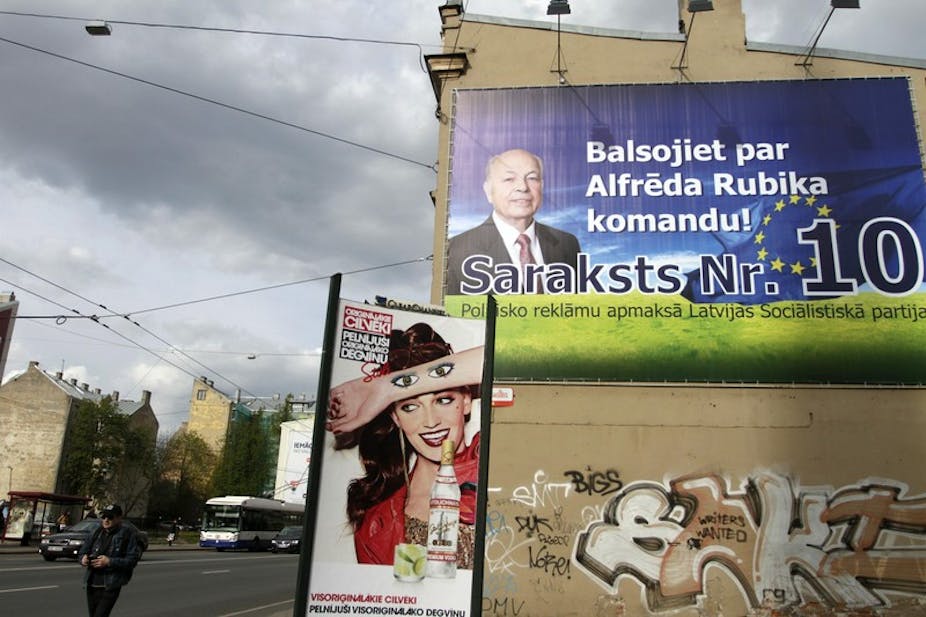As other countries wind themselves up over Euroscepticism, austerity and ethnic strife, Latvia’s third European Parliament election campaign has been as sedate and consensus-driven as expected. Indeed, one leading candidate’s pre-election makeover and a brief but feisty spat over EU structural funds between two candidates in a nationally televised debate attracted as much public attention as the many recent worthy debates, manifestos, articles and candidate speeches.
This is largely because the campaign lacks serious tension, with all the major political parties being broadly pro-European. The deepest political cleavage in the country is between Latvians and the Russophone minority, who largely migrated to Latvia during the Soviet era, but Latvia’s Russophone parties are broadly supportive of the European Union as a safeguard for their human and civil rights.
The governing Latvian parties have consistently placed Latvia’s integration into the EU, NATO and other major western organisations at the heart of foreign and security policy, and Russia’s annexation of Crimea has made them all the more pro-European.

While some parties (like the Green-Farmers Union and the nationalist-leaning National Alliance) oppose deeper integration, others see it as vital for Latvia’s economic and security future (Unity). But all essentially support the idea of European unity, and aim to keep Latvia within the EU.
Colleagues and rivals
Fourteen parties are competing for just eight seats in the election that will be held on Saturday 24 May. Opinion polls indicate that only four political parties are likely to pass the 5% threshold.
Indeed, there is more competition within political parties than between them. Latvia uses a preferential voting system that allows voters to rank candidates on the ballot list. Candidates are therefore as likely to campaign to move themselves up the list as they are to campaign for their party as a whole.
With only eight seats up for grabs, and no party likely to win more than three MEP slots (despite most parties putting forward 16 candidates), this intra-party rivalry is fierce. The prime minister’s Unity party list contains one former prime minister, two former foreign ministers and three other former ministers – but the party is likely to win only two seats.
The European Parliament attracts these heavyweights largely because an MEP’s salary is substantially higher than the €2000-3000 a month paid to Latvian legislators and ministers. Unlike in many other EU states, a few years in the European Parliament also burnishes a Latvian politician’s CV, removing them from the domestic fray and improving their international nous. Valdis Dombrovskis, Latvia’s longest serving prime minister, was an MEP when elected to the post.
The political experience of many candidates has ensured that public debates have been heavy on policy and technocratic detail, alongside the usual bickering over ethnic concerns. Unsurprisingly, this has not particularly seized the public’s interest. But existential security fears prompted by Russia’s increasingly aggressive foreign policy in its “near abroad” led pollsters to predict a turnout of almost 60% – well above the 53% that voted in 2009 when the European Parliament poll was held concurrently with local elections - although a more recent poll indicated rising voter apathy.
All in all, the 2014 European poll in Latvia is very different to the election elsewhere in the EU. Turnout may rise, the debate is policy-heavy, there is barely a hint of populist Euroscepticism, and leading domestic politicians are greatly invested in campaigning for seats in Brussels. This is exactly the boring normality that the Latvian public hoped European Union accession would bring.

